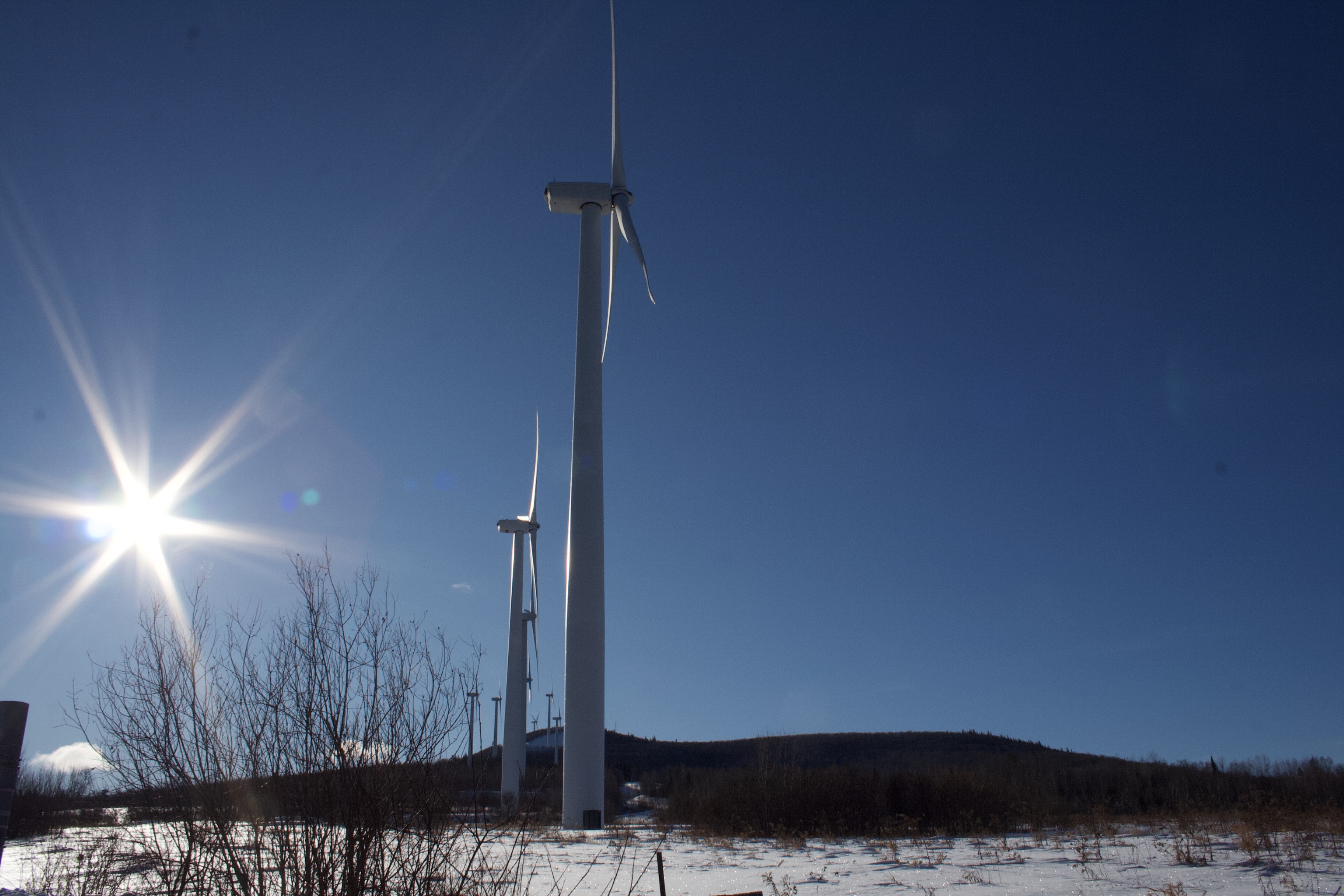Early this morning, the House voted 215-214 to pass a sweeping budget reconciliation bill with provisions that include a cancellation or phaseout for just about everything that was in the Inflation Reduction Act.
The measure, which now heads to the Senate, is being described by clean energy and environmental groups as a monumental betrayal of the country that will cost jobs and increase electricity bills.
But during the floor debate overnight, the energy parts of the bill were an afterthought to higher priority issues for members of both parties, such as tax cuts, revisions to Medicaid and a desire to support or oppose the agenda of President Donald Trump.
Two months ago, 21 House Republicans sent a letter to the chair of the House Ways & Means Committee about the need to preserve the IRA tax credits, warning against “premature credit phase outs or additional restrictive mechanisms.”
House leadership was able to assuage some of those concerns when the draft of the bill showed that tax credits for biofuels would be preserved, among other changes.
But some House Republicans still objected. Last week, 14 of the signers of the previous letter issued a joint statement affirming their support for the credits. This was a smaller number than the March letter, but it was more than enough to sink the bill if even a few of them held firm.
So how many of them ended up voting against the bill? Zero.
Rep. Andrew Garbarino (R-N.Y.) missed the vote, but had intended to vote for the bill. The other 13 people who issued the statement last week all voted “yes.”
Before the vote, I spoke with David Spence, a professor at the University of Texas at Austin, to try to get a sense of the factors that were most likely to influence each member.

“They’re feeling pressure to go along with whatever Trump wants and whatever the leadership wants,” he said. “What’s putting counter pressure on them is that for some of them that means giving up a lot of jobs and money” that came from the IRA. “And for others, it’s about how far they can be pushed away from their principles.”
The counter pressure turned out to be weak.
Spence is the author of Climate of Contempt: How to Rescue the U.S. Energy Transition from Voter Partisanship, a 2024 book that I wrote about last summer. He wrote a blog post this month describing the factors influencing how Congress may vote on IRA-related measures.
He was paying close attention to a debate within the debate between 38 Republicans who had signed a letter this month attesting to “the urgent need to fully repeal the Inflation Reduction Act,” and also the 21—later 14—who said they wanted at least some parts of the law to be preserved.
A brief aside about the merits of the bill: Energy researchers are describing it as an economic and environmental disaster. The think tank Energy Innovation said this week that the bill would lead to the loss of 830,000 jobs by 2030 and increase consumer energy costs by $16 billion in 2030. Any discussion of who voted for it in the House and who might in the Senate may sound like a parlor game, but the stakes are incredibly high when it comes to shaping the world of future generations.
Spence made a chart showing each of the members who signed the two letters, along with factors that may shape their views, such as the partisan lean of their districts and the extent of IRA projects there.


Of the 38 people calling for a full repeal, 28 represent districts with a Republican lean of at least 10 points, which means their district favored the GOP by at least 10 percentage points more than the country as a whole did in the 2024 general election, according to Cook Political Report. These members have a much higher risk of losing in a primary challenge from another Republican than of losing in a general election.
Among the 38 are some of the House’s most outspoken budget hawks, who are so committed to their ideology that they have been willing to go against the House leadership and the Trump administration on issues related to spending. Examples include Reps. Josh Brecheen of Oklahoma, Andrew Clyde of Georgia and Ralph Norman of South Carolina.
Only 10 of the 38 have IRA-funded projects in their districts, based on data from E2, a clean energy business group. Among them is Norman, whose district has six such projects that have led to commitments for 1,933 jobs.
One of those projects, a solar panel plant planned by Silfab Solar of Canada, has been controversial. Some residents have said they are alarmed about chemicals that would be used to make solar equipment.
Norman said on Wednesday that his main concern is that he doesn’t like subsidies.
“Embracing an ‘all-of-the-above’ energy strategy is crucial, and solar plays a role in that mix,” Norman said in a statement. “But let me be clear—that does not mean we support endless subsidies. The real value of energy production lies in strengthening our infrastructure, streamlining permitting, and reducing our dependence on foreign suppliers. We need to rely on what works where it works, without burdening taxpayers to prop up any one industry.”
This story is funded by readers like you.
Our nonprofit newsroom provides award-winning climate coverage free of charge and advertising. We rely on donations from readers like you to keep going. Please donate now to support our work.
Donate Now
Based on the outcome, the House members who really hate the IRA were able to win the internal debate over those who wanted to preserve some parts of the law—and it wasn’t even close.
The final negotiations were more about making the bill palatable to budget hardliners, which involved making the IRA provisions even more onerous for energy companies and implementing faster phaseouts.
Among the potential holdouts that voted for the bill was Rep. Don Bacon (R-Neb.), who was re-elected despite his district favoring Democrats by a narrow margin in the presidential election. He was part of both the letter and the joint statement calling for tax credits to be maintained.
Others who said they supported tax credits come from heavily Republican districts that have major projects funded in part by the IRA. This includes Rep. Buddy Carter of Georgia, who has seven projects and 4,462 jobs in his district related to the law, and still voted for the bill.
“This is a once-in-a-generation bill that will unlock President Trump’s full domestic agenda, which Georgians voted for overwhelmingly back in November,” Carter said in a statement after the vote. “With the One, Big, Beautiful Bill Act we are unleashing our nation’s energy dominance, securing the border, putting more money back into hardworking Americans’ wallets, kicking illegal immigrants off Medicaid so that it is available for those who need it, and ending the waste, fraud, and abuse that risks sending our country into economic ruin.”
The larger lesson was that the power of partisanship overwhelmed just about everything else.
This gives credence to a view I hear a lot from grassroots environmental advocates: The only way to pass and maintain strong climate and energy policies is to elect Democrats because even the Republicans who care about those topics will be marginalized and ultimately run over by their leadership.
But this isn’t over yet. Four Senate Republicans have raised concerns about the phaseout of energy tax credits. If the Senate makes any changes, the House will need to vote again.
In the meantime, entire industries—including solar, wind, batteries, EVs and energy efficiency—may need to throw out their business plans, scrap investments and prepare for a challenging near future.
Other stories about the energy transition to take note of this week:
Empire Wind Is Back on Track After Trump Administration Reversal: Work can begin again on New York’s Empire Wind 1 offshore wind project after the Bureau of Ocean Energy Management lifted a stop work order that it had issued last month, as my colleague Carrie Klein reports for ICN. The project was 30 percent complete when it was paused. The Trump administration said it ordered the pause because the approval process for the project was flawed, but the government has not shared details. Clare Fieseler of Canary Media reported this week that the supposed evidence involving Empire Wind 1 had not been shared even within government agencies involved with the project, which raised questions about whether the stop work order was justified.
The World’s Largest Battery Maker Has a Successful Stock Offering in Hong Kong: Shares in Contemporary Amperex Technology, or CATL, surged in value by 18 percent this week as the company made its debut on the Hong Kong stock exchange, as John Liu reports for CNN. The China-based company is the world’s largest manufacturer of EV batteries. Its stock offering is part of a greater integration with global financial markets at a time when trade tensions are high between the United States and China.
TVA Is the First U.S. Utility to Seek a Permit for a Small Modular Reactor: The Tennessee Valley Authority, the federally owned power company, this week said it had applied to federal nuclear regulators for a permit to build a small, modular nuclear reactor in Oak Ridge, Tennessee, as Jennifer McDermott reports for The Associated Press. While companies have spent years working to develop small modular reactors and the nuclear industry views this type of plant as the future of nuclear power, the plans have always been several steps from reality. This application is no guarantee that a plant will be built, and the approval process will likely take years, but the fact that a company has applied for a permit is still significant.
Higher Solar Tariffs Are Coming: The U.S. International Trade Commission voted this week to accept findings that solar panel manufacturers in this country have been harmed or threatened by inexpensive imports from Cambodia, Malaysia, Thailand and Vietnam, a key step toward the United States placing higher tariffs on solar products from those countries, as Nichola Groom reports for Reuters. The result is likely to be higher costs to develop solar projects, which is why U.S. solar industry groups have warned that an increase in tariffs will lead to a loss of jobs and investment. These tariffs are in addition to the duties that the Trump administration has imposed as part of its trade policies.
Inside Clean Energy is ICN’s weekly bulletin of news and analysis about the energy transition. Send news tips and questions to [email protected].
About This Story
Perhaps you noticed: This story, like all the news we publish, is free to read. That’s because Inside Climate News is a 501c3 nonprofit organization. We do not charge a subscription fee, lock our news behind a paywall, or clutter our website with ads. We make our news on climate and the environment freely available to you and anyone who wants it.
That’s not all. We also share our news for free with scores of other media organizations around the country. Many of them can’t afford to do environmental journalism of their own. We’ve built bureaus from coast to coast to report local stories, collaborate with local newsrooms and co-publish articles so that this vital work is shared as widely as possible.
Two of us launched ICN in 2007. Six years later we earned a Pulitzer Prize for National Reporting, and now we run the oldest and largest dedicated climate newsroom in the nation. We tell the story in all its complexity. We hold polluters accountable. We expose environmental injustice. We debunk misinformation. We scrutinize solutions and inspire action.
Donations from readers like you fund every aspect of what we do. If you don’t already, will you support our ongoing work, our reporting on the biggest crisis facing our planet, and help us reach even more readers in more places?
Please take a moment to make a tax-deductible donation. Every one of them makes a difference.
Thank you,
















